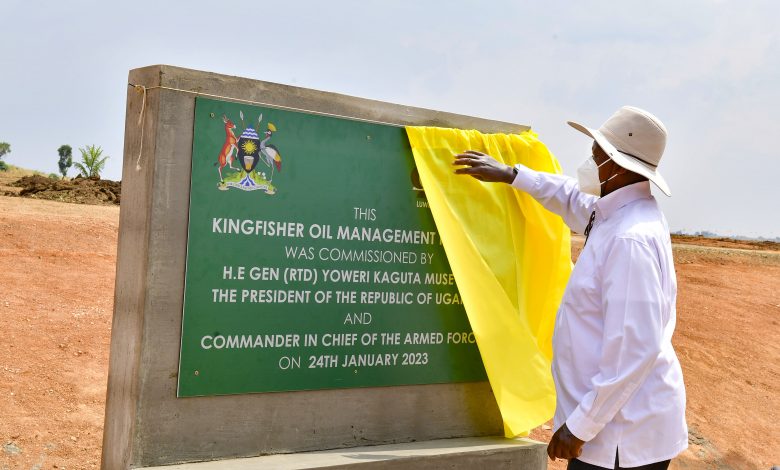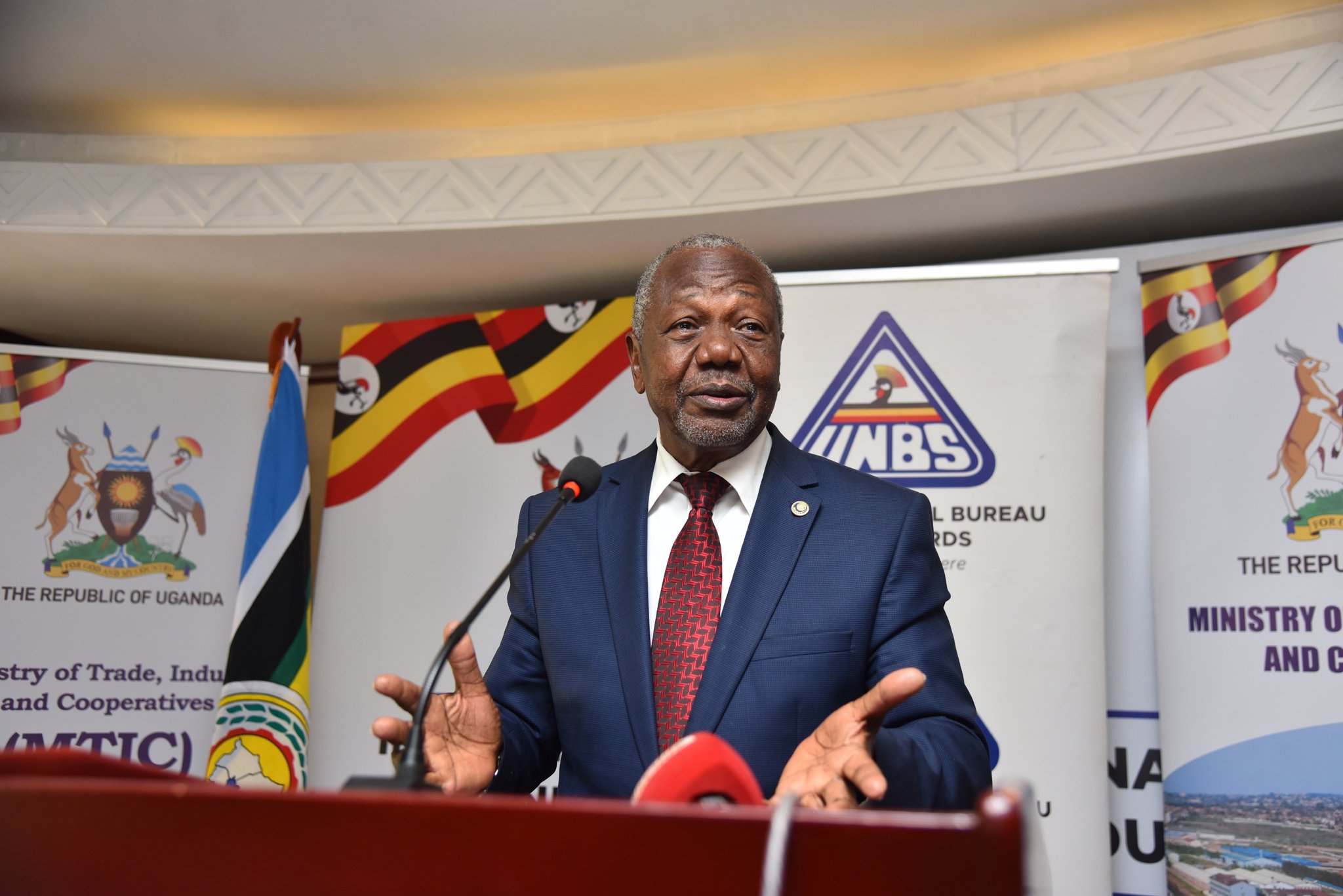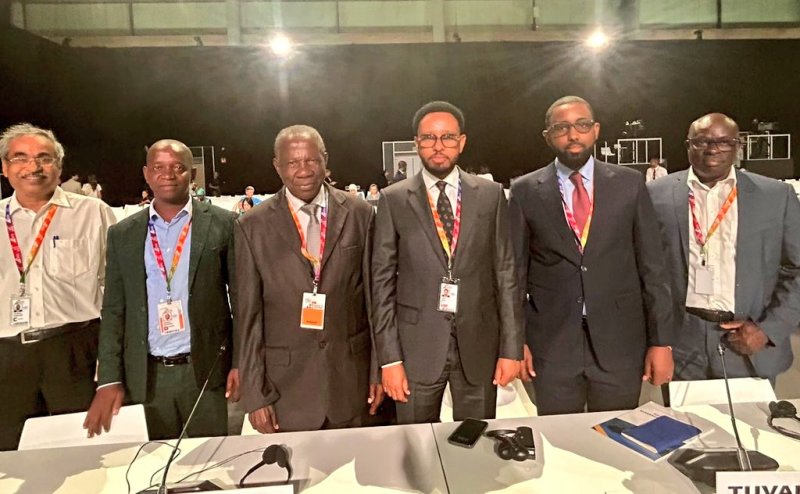Fossil fuels a weapon of massive destruction in Africa
Unless we act now, Africa will be locked into dirty and dangerous new fossil fuel production and infrastructure that threatens people, nature and the global climate.

By Gerald Barekye
Since independence, African countries have spent decades and billions of dollars investing in fossil-fuel-based energy systems that have failed to provide modern energy access to over 600 million people which is about half of the continent’s population.
Currently, fossil fuels are the main driver of climate change and the largest driver of biodiversity loss worldwide.
The fossil fuel industry and its products are accounting for over 90% of global industrial emissions and around 70% of all human emissions according to Paris Agreement which was signed in 2015.
The intergovernmental panel on climate change (IPCC) indicates that 3.5 billion people, roughly 40% of humanity are highly vulnerable to the impacts of climate change and Africa is arguably the most climate-vulnerable continent.
Currently, Africa and its people are already devastated by the ravages of the climate crisis – cyclones hitting Mozambique, Malawi, Zimbabwe, Southern Africa and famines in the Horn of Africa that have resulted in the death and destruction of millions of properties.
Due to climate impacts, vulnerable people are suffering direct human rights harms of fossil fuel extraction, production and its related infrastructure in their local communities.
These harms such as contamination of local water and food supplies, air pollution, biodiversity loss, forced evictions and other human rights abuses for example in Albertine Graben Uganda where oil activities are taking place.
The analysis by United Nations Environment Program (UNEP) demonstrates how oil extraction has contaminated soil and water bodies in the Niger Delta and led to health crises including a rise in cancers, birth defects, breathing difficulties and contributed to the brevity of life in the oil field communities which stands at 40 years.
In Eastern Africa, the East African Crude Oil Pipeline (EACOP) has undermined human rights, causing over 12,000 families to lose land, and endangering sensitive and vital ecosystems.
In Mozambique, hundreds of rural families have been removed from their homes, farmland and fishing grounds to build the infrastructure required to exploit fossil gas reserves in Cabo Delgado.
The Further expansion of fossil fuel infrastructure in Africa has greatly increased the vulnerability of African populations to both climate-related and direct impacts from the fossil fuel industry breaches African states’ obligations to protect human rights.
In 2018, fossil fuel-related air pollution caused a staggering 1 in 5 deaths worldwide and Fossil fuels have been identified as the world’s most significant threat to both elderly and children’s health.
The energy transition from fossil fuels to renewable energy is the answer to save the planet and Africa needs a rapid energy transition away from fossil fuels to cleaner, cheaper, lower-emissions, renewable energy sources.
Globally, renewable energy offers the technical potential to produce more than 100 times the world’s energy needs by 2050. It should be noted that Africa is a renewable energy superpower, with greater capacity than any other continent.
A recent report by the Natural Resources Governance Institute notes that if national oil companies follow their current course, they will invest more than $400 billion in costly oil and gas projects that will only break even if humanity exceeds its emissions targets and allows the global temperature to rise more than 2°C.
Rating agencies, such as Fitch, have recently announced that climate change-stranded assets could cause substantial falls in exporter’s sovereign credit ratings and increase their challenge in servicing existing debts. In Africa, stranded assets have been identified by the UN University as presenting a very real threat to Africa’s development.
Africa should understand that building new renewable energy is cheaper than running existing fossil fuel plants because it’s now cheaper to build and operate new large-scale wind or solar plants in nearly half the world than it would be to run an existing oil or gas-fired power plant.
Renewable energy is more cost-effective when the additional costs of extracting, transporting and refining fossil fuels is taken into account. And even more cost-effective when the costs of adapting to the adverse climate impacts of fossil fuels are taken into account.
Building extensive new fossil fuel infrastructure is simply not an economically sound path forward for Africa’s development goals as set out in Agenda 2063, nor does it make sense as a cost-effective means to address energy access, or to undertake an energy transition.
The continuous expansion of energy access drawing on oil and gas in the short- and medium-term, and fossil gas in the short-, medium- and long-term, threatens to exacerbate health problems on the continent.
The continuous expansion of fossil fuel production in Africa and the associated emissions will accelerate the degradation of Africa’s natural systems and undermine international targets relating to biodiversity and causes direct threats to Africa’s ecosystems.
The planned fossil fuel infrastructure to develop the East African Crude Oil Pipeline has created risks to biodiversity, protected areas, communities and water resources in the Albertine region.
The networks of infrastructure enabling exploration, extraction, transportation and combustion of fossil fuel mines, wells, pipelines, refineries, roads and transportation infrastructure are already degrading nature and causing direct and immediate harm and will worsen as infrastructure expands.
An energy transition that shifts away from fossil fuels towards more decentralised, community-based approaches is needed to support a model of African rural development that benefits rural people and communities and delivers food sovereignty and security for the continent.
The energy transition is also an important opportunity to transform Africa’s food systems away from insecurity and fossil fuel-heavy inputs towards one based on ecological agriculture, democratic ownership, and ensuring enough healthy food for all.
Therefore there should be an end to fossil-fuel-induced energy apartheid in Africa which has left 600 million Africans without access to modern clean renewable energy. Scaling up cost-effective, clean, decentralized, renewable energy is the fastest and best way to end energy exclusion and meet the needs of Africa’s people.
African leaders should embrace people-led processes involving rapid social, economic and political change to achieve energy democracy and deliver renewable energy assets into the hands of people and communities across the continent.
Unless we act now, Africa will be locked into dirty and dangerous new fossil fuel production and infrastructure that threatens people, nature and the global climate.
Gerald Barekye is the Executive Director of the Centre For Environment Research and Agricultural Innovations (CERAI) – Email: geraldbarekye@gmail.com







